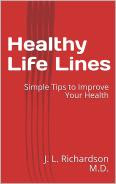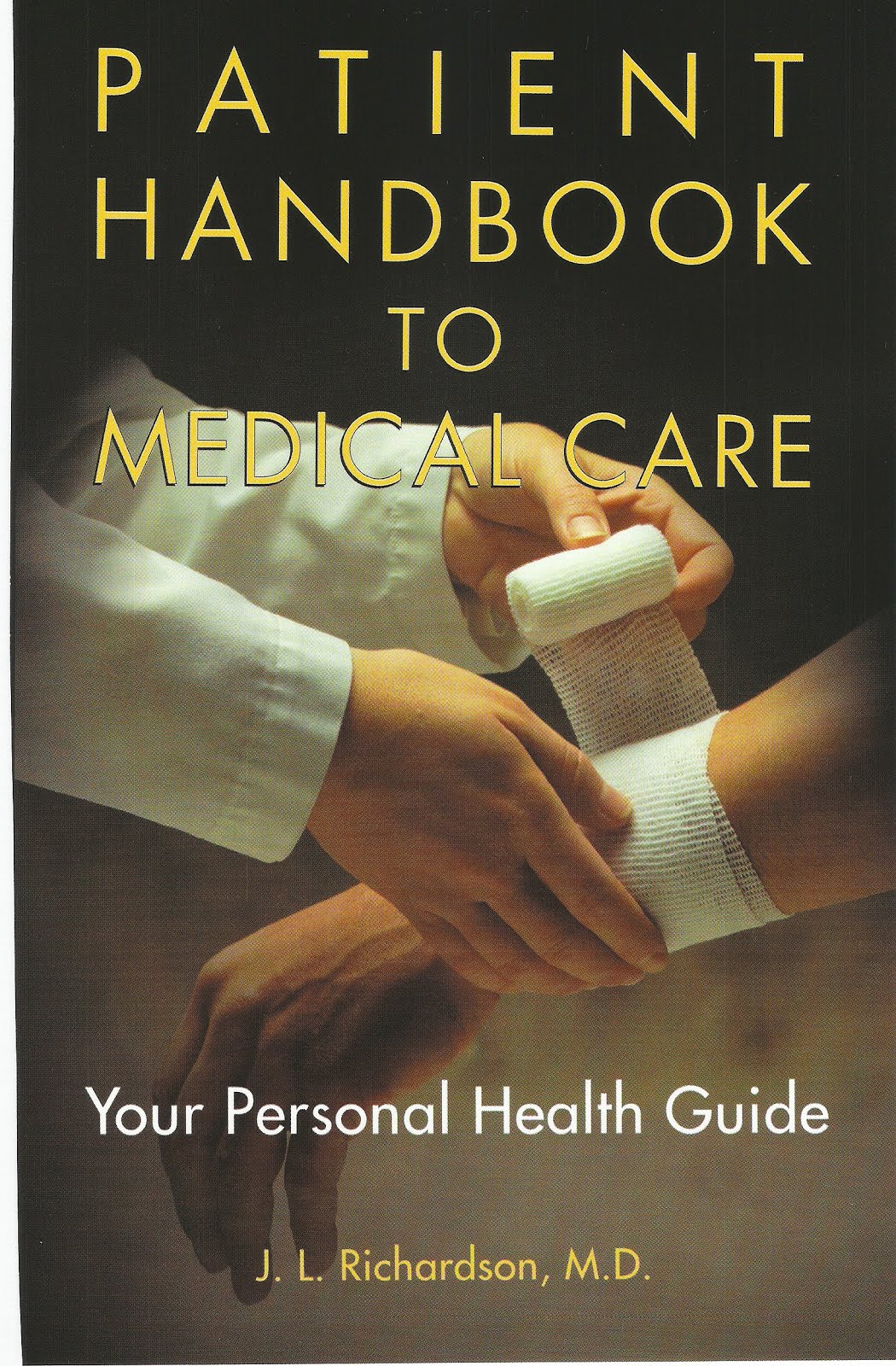Dr. Oz has spoken again. On today's "Oprah" he made it crystal clear that second opinions, even third, are "patriotic" and show you care about your doctor. He said physicians should not be offended if a patient gets another opinion. Instead physicians should embrace the opportunity and respect their patients. He further stated that that this is an opportunity for doctors to learn.
Most doctors do get a terrible attitude if they know you are getting other opinions. They must feel threatened in some way. Is it an ego thing? As a physician, I fail to see why other opinions are so hard for my colleagues to embrace and suggest. As a patient, I fail to see why patients fail to trust their instincts about seeking other opinions.
Whenever, I have felt that another opinion was needed for my health, I did so. I told my primary doctor - after the fact. I brought in the other doctor's notes and recommendations, and I expected them to be followed. I found that when doctors don't know about a new test or treatment they tend to discourage you and get you out of their office quickly. Instead they should be yearning to know more about it, and what you have found out about it.
Unfortunately, I have had to seek other opinions on more than one medical condition I have had. Each time it was the best decision and the right thing for me. Then my doctors embraced it. Being a physician patient does not get you better care as most think.
It is good to trust physician, but you must be cautious. Trusting someone else is far from enough when it comes to your health and well being. You must help yourself - Help, Empower, Lift, Prepare.
Get another opinion if you need to it. And another, until you have the best. That's the way Lance Armstrong did it.
Bravo again, Dr. Oz! Thank you and Ms. Winfrey.
martes, 16 de septiembre de 2008
martes, 9 de septiembre de 2008
Follow UP!
A news story on colon cancer follow up revealed that if you are older, a minority, or have other health problems you may be receiving less screening for colon cancer follow up. Many that have colon cancer, about 60%, are failing to get proper tests for follow up of their cancer. This is unacceptable. Why are so many being neglected? Do our doctors care, or do they really not know what to do? The article actually suggests the latter may be true!
The deputy chief medical officer of the American Cancer Society said that he was not surprised by these findings. He felt that the doctors' ability to give the proper care was under par. Now this is truly a sad situation. The person you trust with your health may be less qualified than you think.
It is up to you to be on top of your own health care. Follow up is so important. Make the choice to call your doctor, and to make your appointments. More importantly, make it your business to know all you can about your health - what you have, what you need. Follow UP!
The deputy chief medical officer of the American Cancer Society said that he was not surprised by these findings. He felt that the doctors' ability to give the proper care was under par. Now this is truly a sad situation. The person you trust with your health may be less qualified than you think.
It is up to you to be on top of your own health care. Follow up is so important. Make the choice to call your doctor, and to make your appointments. More importantly, make it your business to know all you can about your health - what you have, what you need. Follow UP!
viernes, 5 de septiembre de 2008
Stand Up To Cancer
"Stand Up To Cancer" is the best medical TV event ever! Broadcast simultaneously on the three major broadcast networks at 8 P.M. tonight, this event was magnificently powerful! Much information on cancer cause, early detection, treatment and more was provided throughout the hour. This also included written information in large letters at the bottom of the screen.
TV is a powerful information source, yet used the least for providing basic medical information and news. Hopefully this TV event will set the precedent for more real medical productions, maybe even a commercial free, 24-7 medical channel.
Stand up to cancer! Do your self breast exam. Do your scrotal exam. Do your preventive screening tests ordered by your health care providers. Do it routinely. "Just do it!"
A thorough medical history and physical exam includes the basic cancer screening. Some tests considered for routine cancer screening are:
-mammogram, MRI, sonogram - breast cancer
-PSA (prostate specific antigen) - prostate cancer
-colonoscopy - colon cancer
-stool blood check - colon cancer
-PAP smear - cervical cancer
-complete blood count - blood cancer
-CT or MRI scan - lung cancer, brain cancer, pancreatic cancer
and cancer in other body areas being scanned
-pelvic sonogram - ovarian cancer
-body scan (neck to buttocks and in between) - checks
body for cancer and other medical conditions.
Screening exams and tests save lives. Talk to your doctor. Be sure your doctor goes over the test results with you and explains EVERYTHING! Leave with your questions answered! Be sure to follow up to prevent any delays.
Stand up for cancer!
TV is a powerful information source, yet used the least for providing basic medical information and news. Hopefully this TV event will set the precedent for more real medical productions, maybe even a commercial free, 24-7 medical channel.
Stand up to cancer! Do your self breast exam. Do your scrotal exam. Do your preventive screening tests ordered by your health care providers. Do it routinely. "Just do it!"
A thorough medical history and physical exam includes the basic cancer screening. Some tests considered for routine cancer screening are:
-mammogram, MRI, sonogram - breast cancer
-PSA (prostate specific antigen) - prostate cancer
-colonoscopy - colon cancer
-stool blood check - colon cancer
-PAP smear - cervical cancer
-complete blood count - blood cancer
-CT or MRI scan - lung cancer, brain cancer, pancreatic cancer
and cancer in other body areas being scanned
-pelvic sonogram - ovarian cancer
-body scan (neck to buttocks and in between) - checks
body for cancer and other medical conditions.
Screening exams and tests save lives. Talk to your doctor. Be sure your doctor goes over the test results with you and explains EVERYTHING! Leave with your questions answered! Be sure to follow up to prevent any delays.
Stand up for cancer!
jueves, 4 de septiembre de 2008
Healthy Aging Month
During National Preparedness Month the nation prepares for emergencies. September is also Healthy Aging Month. This is the ideal time to get the nation prepared for healthy aging. Healthy aging includes lifestyle modifications such as proper diet and regular exercise. These we hear a lot about. Often ignored is the lifestyle modification of routine doctor visits for physical exams, blood tests, preventive screening tests, and more.
The physical exam and patient medical history (including family history) are important in determining what tests are needed for each person. That is why regular doctor visits are an important lifestyle modification to every one's health maintenance and wellness plan. As we age our bodies tend to acquire medical conditions that require treatment by a doctor or other health care provider.
Healthy aging. We might as well do it gracefully. See the web page www.healthyaging.net for more information.
"Patient Handbook to Medical Care: Your Personal Health Guide" by J. L. Richardson, M.D. is the ideal resource to help you. Preview actual pages at http://www.books.google.com/. Check out the book at http://www.mypatienthandbook.com/.
Add your healthy aging comments to the blog. Free copies of "Patient Handbook to Medical Care" will be available to the first 10 bloggers each week during Healthy Aging Month.
The physical exam and patient medical history (including family history) are important in determining what tests are needed for each person. That is why regular doctor visits are an important lifestyle modification to every one's health maintenance and wellness plan. As we age our bodies tend to acquire medical conditions that require treatment by a doctor or other health care provider.
Healthy aging. We might as well do it gracefully. See the web page www.healthyaging.net for more information.
"Patient Handbook to Medical Care: Your Personal Health Guide" by J. L. Richardson, M.D. is the ideal resource to help you. Preview actual pages at http://www.books.google.com/. Check out the book at http://www.mypatienthandbook.com/.
Add your healthy aging comments to the blog. Free copies of "Patient Handbook to Medical Care" will be available to the first 10 bloggers each week during Healthy Aging Month.
martes, 2 de septiembre de 2008
National Preparedness Month
As Hurricane Gustav fizzles out, and Hurricane Hanna (with Ike and Josephine on her tails) approaches the southeast US, it is time to be sure you are prepared for any emergency. Safety and health are more important than ever during an emergency situation. Being prepared is a real-time, year round activity.
September is National Preparedness Month which is sponsored by the Department of Homeland Security (DHS). This program helps us prepare for emergencies. It encourages us to "get a kit, make a plan, be informed, get involved".
While it is important to prepare yourself, it is also important to help prepare your community. The Citizens Corp, "uniting communities, preparing the nation", encourages you to start with personal preparedness as well as volunteering to help in community preparedness.
Citizens Corps programs include the Medical Reserve Corps (MRC), Community Emergency Response Team (CERT), Fire Corps, Volunteers in Police Service (VIPS), and USA on Watch (National Neighborhood on Watch). Learn more about these programs at www.citizenscorp.gov. Get involved. If you are already involved, call on others to do their part.
Preparedness begins at home. Be ready, stay ready. Be informed and check out National Preparedness Month at www.ready.gov.
September is National Preparedness Month which is sponsored by the Department of Homeland Security (DHS). This program helps us prepare for emergencies. It encourages us to "get a kit, make a plan, be informed, get involved".
While it is important to prepare yourself, it is also important to help prepare your community. The Citizens Corp, "uniting communities, preparing the nation", encourages you to start with personal preparedness as well as volunteering to help in community preparedness.
Citizens Corps programs include the Medical Reserve Corps (MRC), Community Emergency Response Team (CERT), Fire Corps, Volunteers in Police Service (VIPS), and USA on Watch (National Neighborhood on Watch). Learn more about these programs at www.citizenscorp.gov. Get involved. If you are already involved, call on others to do their part.
Preparedness begins at home. Be ready, stay ready. Be informed and check out National Preparedness Month at www.ready.gov.
Suscribirse a:
Entradas (Atom)


